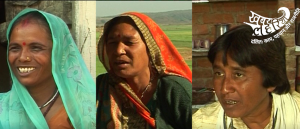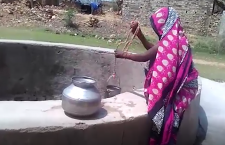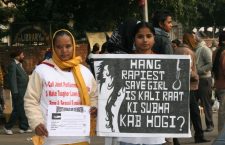To be Dalit. To be Woman. Khabar Lahariya explores the double-whammy challenge and discrimination faced in lives lived every day, reports gathered every day. And in working for decades in the hinterland, as Dalit women ourselves.
In Episode 5 of Chief Reporter ki Diary Se, Khabar Lahariya Chief Reporter and Banda local, Meera Devi – who dropped her last name deliberately – shared with her audience of approximately 2 million, a harrowing experience she underwent while moving houses. It was largely left unsaid, perhaps because Meera has a formidable reputation of her own as a senior journalist in the area – she is a certified change-maker. The writing on the wall was clear though: Landlords were unwilling to rent out spaces to a Dalit family.
But, according to findings from the Indian Institute of Dalit Studies, Dalit women won’t live to see their 40th birthday, this instance of prejudice and discrimination comes off as mild, mostly harmless. Blended into this, is another statistic: According to the National Human Rights Commission, three Dalit women are raped every single day in the country. Uttar Pradesh, as the front-runner of crimes both against women and Dalits, according to the National Crime Records Bureau, is an ugly embodiment of this double whammy situation – being Dalit and woman.
It is no mean feat then, the achievements of three Dalit women from Bundelkhand’s Chitrakoot, one of the state’s most under-developed regions, whom we have met, profiled, and had the greatest pleasure of hanging out with, over decades of reporting in the hinterland, as Dalit women ourselves.
They have a lot in common – all of them enrolled in literacy classes late in life, all of them have faced the violence of one kind or another, and all of them pursue offbeat life paths.
Sanjo, affectionately called Sanjo pradhan even when she doesn’t hold the position officially, is a workaholic. Elected as head woman twice from Gidurha village, one of the most dangerous villages in the district, given its geographical location – thick forests that are home to seasoned dacoits – Sanjo credits time spent in the adult literacy programme for her self-confidence. That, and her love of Mental Math, “See, I know my Math, so nobody can make a fool of me.” Sanjo, who wears her hair short and dresses exclusively in kurta pyjama says, “What I know, what I have learnt, is that we have the same rights as the men. The same rights to everything in life.”
Sabla, who found herself stuck in a land dispute minus a husband, taught herself law and took up a source of livelihood that isn’t considered too feminine – she became a wood-cutter. “I feared for myself and my young daughter initially. But then I thought I can fend for us both, and there is nothing to be afraid of.” An encounter with smug patriarchy at the local thana sealed Sabla’s fate as the feminist wood-cutter of Chitrakoot!
And then there’s Chamela, a hand-pump mechanic, who first faced doubt about her chosen profession at the home front, “My husband asked me how I would carry the pump in the first place. It’s heavy enough for the men, he said. I thought about it. And it occurred to me that I carry bundles back from my farm that weigh close to 75 kgs, so surely I could try it out?”
She shares an anecdote that’s in the league of one small step for Chamela and a giant leap for Dalit identity, “I went to Bhawari village to fix the hand pump there, and a Brahmin intervened saying, ‘She’s a Koli, she can’t touch our hand pump’. I told him, ‘Well, this hand pump hasn’t worked for five years, Brahmin ji. Look at the state it’s in. There’s shit all around it! And you’re telling me not to fix it?’… After I fixed it, all the men from the village came to see it – they even brought along men from the surrounding villages – and they all had to acknowledge what was staring them all their faces – that yes, this woman can fix hand pumps!”
– Pooja Pande
This story is the fourth and final part of the series Dalit: Kaam, Pehchaan, aur Rajneeti, for which we’re partnering with Firstpost.


